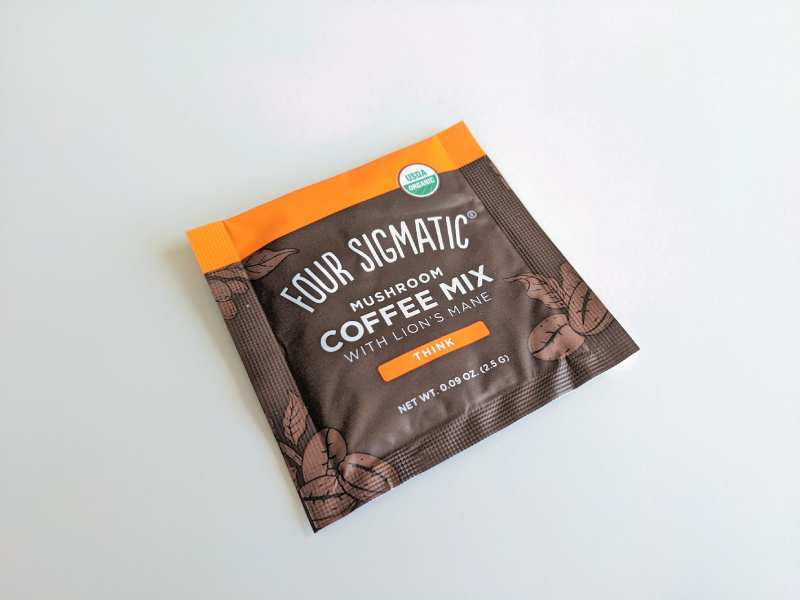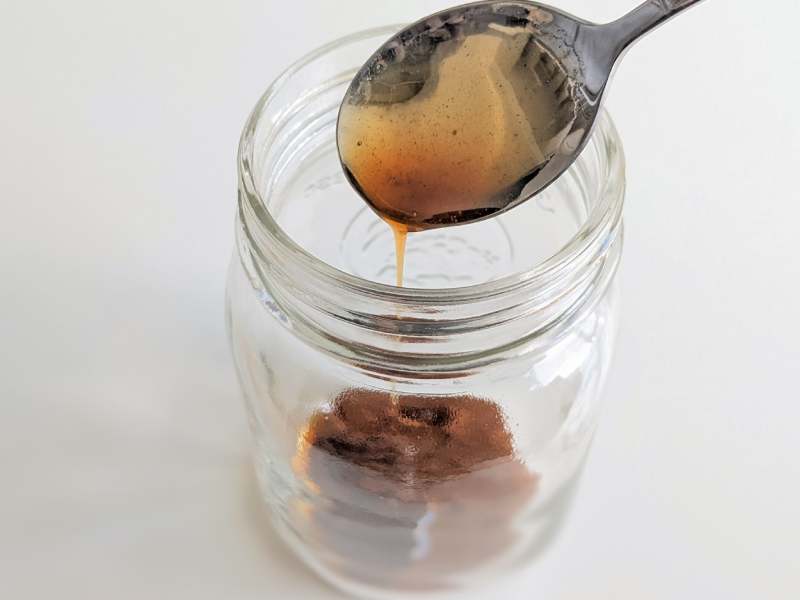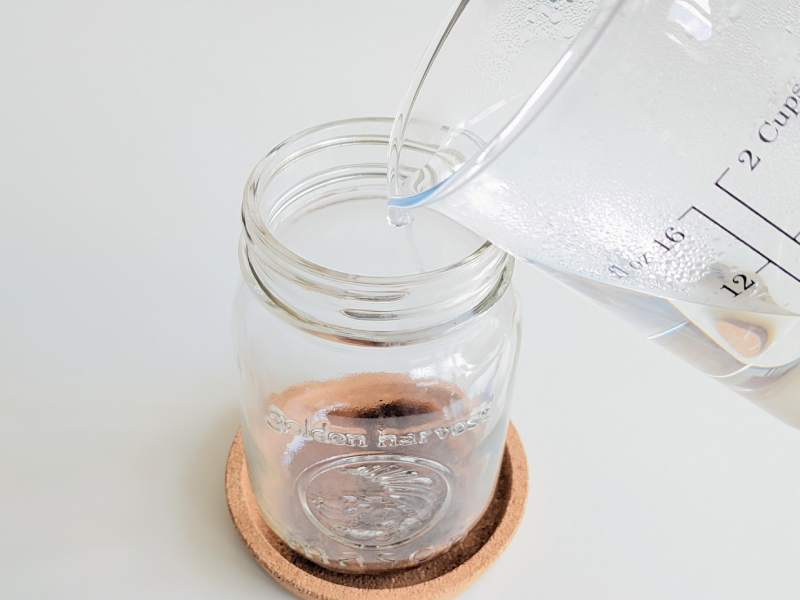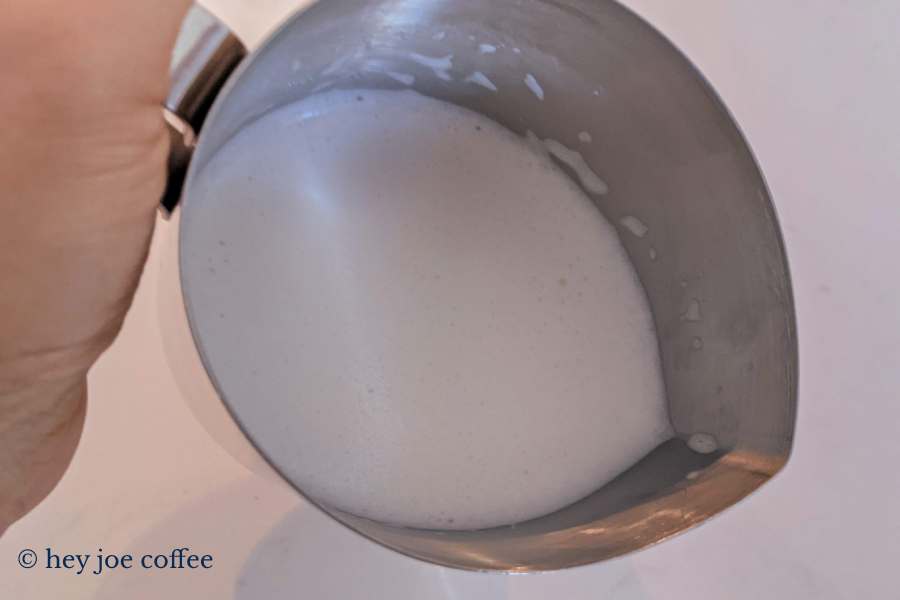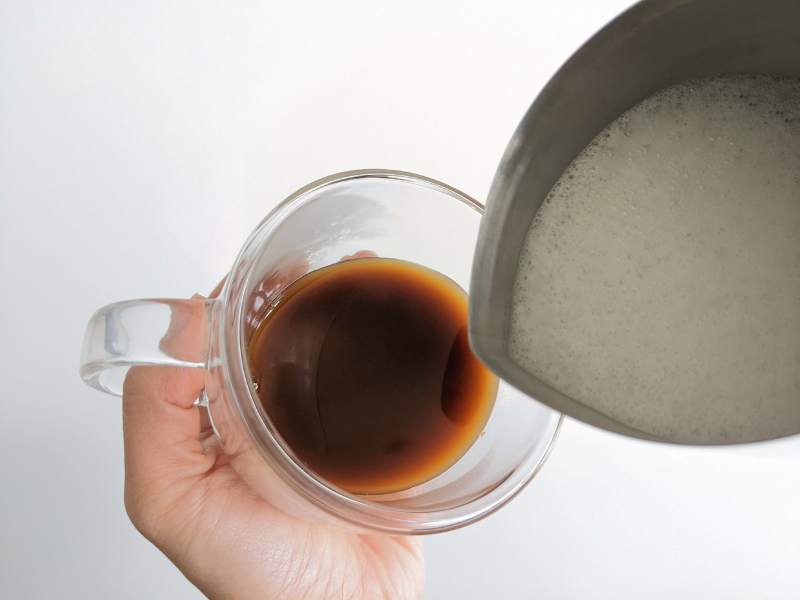At first mention, lion’s mane coffee sounds more than weird but stay with us. We’re not cutting any lion’s hair, but making use of what nature created.
Lion’s mane is a beneficial mushroom that grows on dead trees deep in the forest. Read on to find out how it ended up in coffee and why you need to try it.

Topics Explored
- What is Lion’s Mane?
- Pros & Cons
- Lion’s Mane Coffee Recipe (Cappuccino)
- Appearance & Taste
- More Questions
What is Lion’s Mane?
Lion’s mane is a wild mushroom growing on decaying hardwoods like oak, birch, and maple. It grows in North America and Canada, usually during the spring and fall.
Lion’s mane is rich in antioxidants, contains beta-glucan and other beneficial ingredients. It can be consumed raw, cooked, or dried as a powder. You can also brew lion’s mane tea!
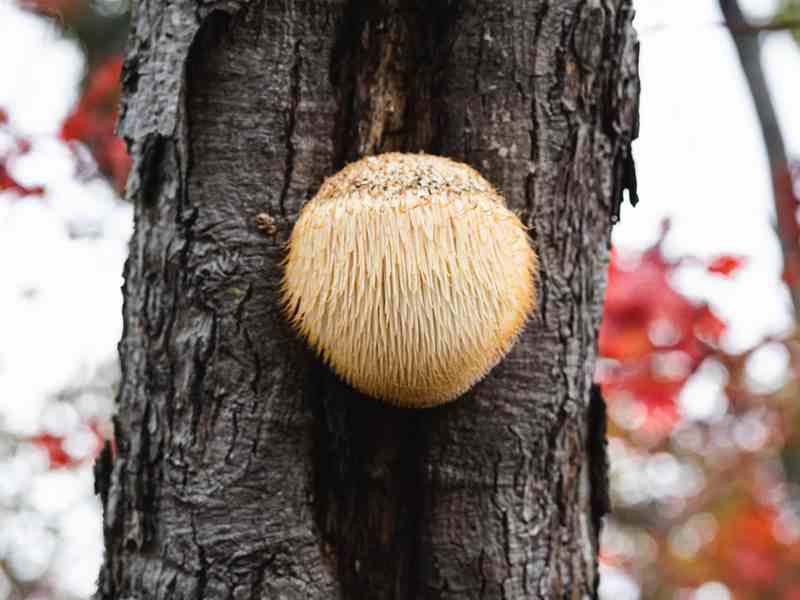
Background
Lion’s mane has been a staple in Chinese folk medicine for centuries, but artificial cultivation began much later in 1988. Buddhist monks drank the tea to improve their mental focus and gain longevity. And they were right!
Modern-day medicine discovered that lion’s mane has ingredients that help fight neurological disorders like multiple sclerosis, Alzheimer’s, and Parkinson’s.
What is Lion’s Mane Coffee?
Lion’s mane coffee got popularized by alternative coffee companies. The idea behind it’s to enhance the benefits you receive from each cup by adding lion’s mane.
This is done by adding the powdered mushroom to coffee before brewing, often accompanied by another benefit-packed mushroom, like Chaga.
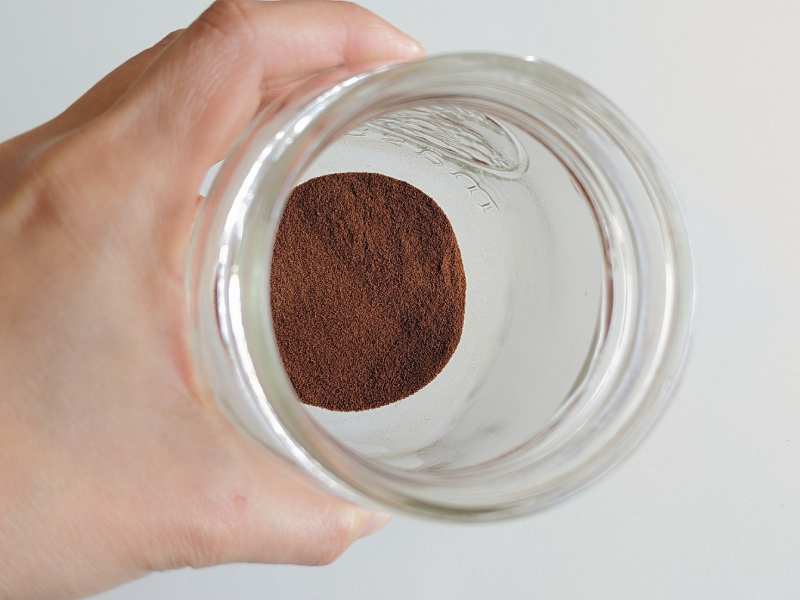
Modern Day
Lion’s mane gained massive popularity after Joe Rogan, a controversial podcast host, advertised it to his wide following.
He used a specific brand to promote the coffee as a brain supplement that helps you with focus and clarity.
According to several social media posts, students also recount positive results and often rely on it as a study aid.
Since then, the mushroom coffee has soared in popularity across the US.
Benefits of Lion’s Mane
There’s not a lot of research behind the mushroom coffee’s benefits. Most research is based on coffee and lion’s mane individually.
While you’re probably aware of coffee’s benefits, here’s what you can get by adding powdered lion’s mane to your morning cup.

1. Brain Health
Research on wild-type mice showed that lion’s mane decreases brain inflammation in just 14 days. Brain inflammation is the leading cause for anxiety and depression.
Lion’s mane also affects recognition memory by boosting cell production in the hippocampus. Recognition memory weakened as we age. These results were noticed in mice after it was fed to them once a day for 4 weeks(1).
2. Depression
Lion’s mane directly affects the temporal lobe improving functioning in this part of the brain. The temporal lobe is responsible for emotions, moods, and memory.
Research shows that in just 4 weeks of regular consumption, the lion’s mane can relieve symptoms of depression and improve sleep(2).
3. Inflammation
Lion’s mane is rich in antioxidants which protect tissues from oxidative stress and prevent an inflammatory response(3). Antioxidants neutralize free radicals in your body that cause oxidative damage to the cells.
Some research has shown that lion’s mane also affects different cancerous cells and slows their growth.
Side Effects
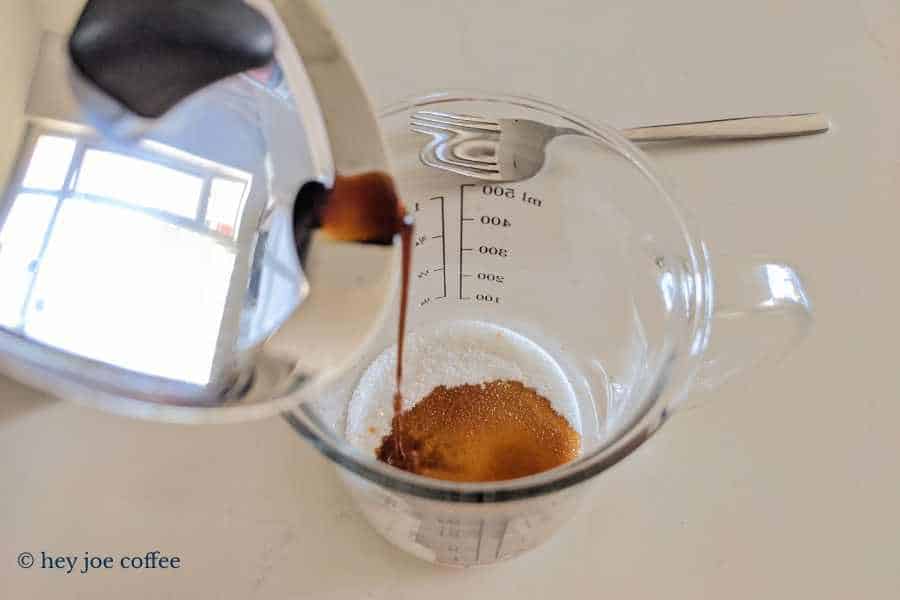
Not everyone can benefit from lion’s mane. While there’s not a record of severe side effects, it can have an adverse effect on people with a history of allergies and asthma.
If you’re one of them, we strongly advise consulting your doctor prior to purchasing or consuming lion’s mane coffee.
Lion’s Mane Pros & Cons (Summary)
Pros
- Helps with anxiety & depression
- May boost memory
- May improve sleep
- Rich in antioxidants
Cons
- May affect those with allergies & asthma
Appearance & Taste

Appearance
To be fair, we were expecting something different since we know it’s mushroom coffee. At first glance, it looks just like a regular latte topped with froth.
If you have it straight without the milk, the consistency is more light and tea-like. The oat milk adds some creaminess and dilutes the earthy flavor.
Flavor
The taste excided our expectations. The sole mention of adding mushrooms to your coffee might make you shiver, but the lion’s mane’s earthiness works great with the oat milk.
The maple syrup adds a note of smokiness, and the nutmeg is the cherry on top. Don’t dismiss it until you have a sip!
Lion’s Mane Coffee Recipe
If the long list of benefits and wide popularity have you intrigued, we’re here to show you how to make lion’s mane coffee.
It’s simple, fast, and you can easily fit it into your morning routine. All you need is some practice and adventurous taste buds.

Vegan Lion’s Mane Coffee Cappuccino
This lion's mane coffee recipe promises to delight your tastebuds as well as your brain health!
Ingredients
- Hot Water: 4 oz
- Foursigmatic Lion’s Mane Coffee Blend: 1 sachet
- Oat Milk: 6 oz
- Maple Syrup: 1/2 tbsp
- Nutmeg or Cinnamon Powder (optional): 1 pinch
Instructions
- Empty out the sachet of lion's mane coffee blend into your favorite mug or cup.
- Add maple syrup to the powdered coffee blend and set aside while you put the kettle on.
- Pour 4 oz of hot water into the mix and stir until it dissolves.
- Pour the oat milk into a pitcher and froth it using a steam wand. Control the temperature as you froth so it won't go over 140°F.
- Take the cup of brewed lion's mane coffee and pour the steamed oat milk over. Scoop out the foam, so it forms a nice peak.
- Since lion's mane is an acquired taste**, we're going to disguise it with a pinch of cinnamon on top of the froth. And your brain-boosting cup of coffee is done!
Notes
* We're going to use a ready-made lion's mane coffee blend. You can mix your own with powdered mushroom, but this way is faster, and the ratios are well sorted.
**For some, the taste might take a few tries to get used to, but the benefits are worth it.
Final Words
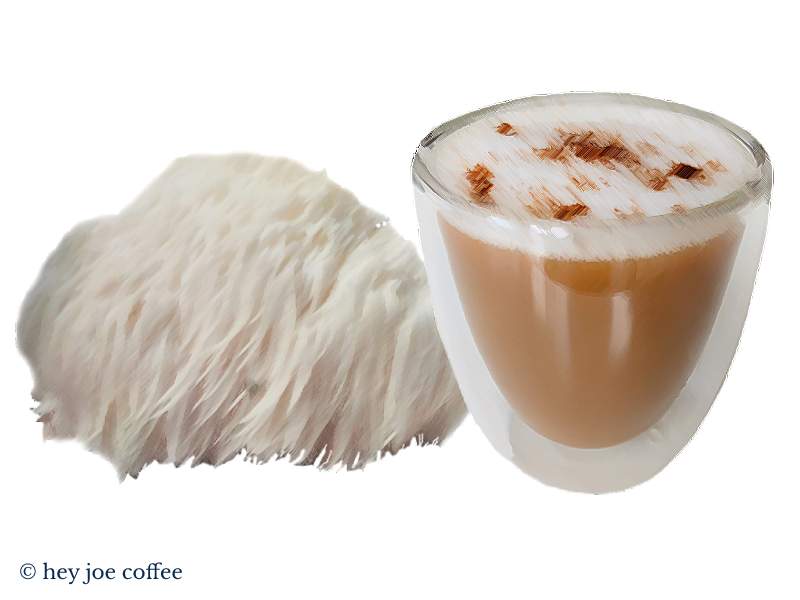
Mushroom and coffee have a good history of doing wonders together, and this is one of the best examples. The health benefits of the mushroom and the earthy flavor work great with coffee.
If you’re having doubts, try our recipe as a morning boost or a mid-day pick-me-up. Beware and consult a doctor if you’re suffering from allergies and asthma.
More Questions
Can you put lion’s mane in coffee?
Yes, you can add lion’s mane to your regular brew. Moreover, it’s commonly found in commercial coffee blends.
It comes with a plethora of health benefits, fiber, minerals, and is very low in calories. It has a mild earthy flavor that works well with different coffee roasts.
Does lion’s mane have caffeine?
Lion’s mane is a mushroom, and it doesn’t contain caffeine on its own. The active ingredients are hericenones and erinacines(4), which help eliminate brain fog and stimulate the nerve growth factor.
When combined with coffee, the whole caffeine content of the drink comes from the coffee.
Is Lion’s Mane good in coffee?
You can’t really taste the lion’s mane when it’s in the blend. On its own, it tastes earthy and slightly sweet.
The smell comes close to that of dark chocolate or cocoa. The dominating flavor in the blend comes from the coffee and any add-on you decide to use.
Wondering where your info comes from? We totally understand. Hey Joe only obtains our information from reputable sources. Contents from this article are sourced from the following publications:
- National Library of Medicine: https://www.ncbi.nlm.nih.gov/pmc/articles/PMC5237458/
- National Library of Medicine: https://pubmed.ncbi.nlm.nih.gov/20834180/
- National Library of Medicine: https://pubmed.ncbi.nlm.nih.gov/21716693/
- NootropicsExpert: https://nootropicsexpert.com/lions-mane/

